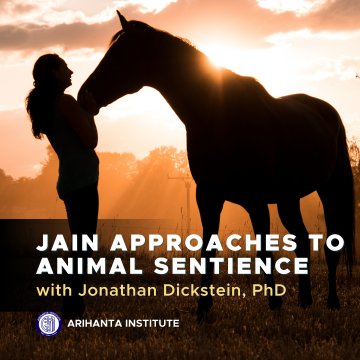Jain Approaches to Animal Sentience


Jain Approaches to Animal Sentience
Course 1011
Jainism’s foundational ethical principle of non-harming assumes that living beings can be harmed by the acts of others. The ability to be harmed by others is not shared by all entities, as neither Jainism or mainstream science maintains that brute objects such as tables or bricks can be, technically speaking, “harmed.” Learn Jain and non-Jain perspectives on the differences between sentient and insentient entities; Jain categorizations of plant and animal life; modern philosophical and scientific approaches to sentience; the relationship of sentience to ethics; and the theoretical and ethical challenges posed by entities such as plants, insects, bivalves, and other beings. All suggested course readings are provided as links and pdfs throughout the course.
Learning Objectives:
* Answer the question “What is Sentience?” and learn western scientific approaches to sentience
* Learn Jain approaches to sentience which consider sense faculties and minds
* Understand the connections between sentience, pain, and ethics
* Look at sentience “on the fringes” including questions around plants, bivalves, and other beings
Course Length
4 hours Self-Study (Professor available by appointment in office hours)Learning Area
 Animal Advocacy & Biodiversity
Animal Advocacy & Biodiversity Instructor
 Jonathan Dickstein, PhD
Jonathan Dickstein, PhD Jonathan has published in a wide array of interdisciplinary journals on topics such as veganism and politics, yoga and diet, Jain veganism, and the ethic of nonviolence (ahiṃsa). Jonathan considers himself a scholar-practitioner, having spent many years not only in libraries but also in public advocating for justice for both humans and nonhumans alike.
Enrollment Options
14-DAY FREE TRIAL
- Free, unlimited access to our self-paced courses for 14-days.
- Already used your free trial? Enroll in our Monthly or Annual Membership options at anytime and continue learning immediately!
MONTHLY MEMBERSHIP
- $45 USD / Month
- Immediate access to course #### | Name.
- Unlimited access to our live and self-paced courses for one month, with month-to-month auto rollover.
- Excludes graduate seminars and language courses.

